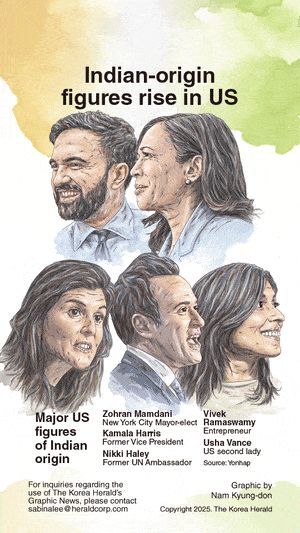 As global investors shift their focus to corporate governance in South Korea’s financial sector, the leadership of the nation’s top financial groups—KB, Shinhan, Hana, and Woori—is under heightened scrutiny.
As global investors shift their focus to corporate governance in South Korea’s financial sector, the leadership of the nation’s top financial groups—KB, Shinhan, Hana, and Woori—is under heightened scrutiny.
What was once seen as merely a formality, boardroom composition now speaks volumes about a company’s strategic priorities and governance culture. Notably, the identity and independence of board chairs have become crucial indicators of how each group balances executive power, oversight, and long-term shareholder value.
Let’s take an in-depth look at the leadership driving South Korea’s four major financial groups.
Breaking the Glass Ceiling: KB and Shinhan Pave the Way
In a significant break from the traditionally male-dominated Korean boardrooms, Shinhan Financial Group and KB Financial Group have appointed female board chairs.
Shinhan set the precedent in 2010 by naming Korea’s first female financial group chair while also abolishing CEO duality. The group furthered this progressive trend in 2024 by appointing Yoon Jae-won as its second female chair.
At 55, Yoon is the youngest chair among Korea’s leading financial groups. A business professor at Hongik University and a key committee member at the Korea Accounting Institute, she has been instrumental in reshaping Shinhan’s governance framework. Under her leadership, the group recorded the fewest financial blunders among its peers over the past two years and became the first to submit a regulatory “accountability map” that delineated executive roles. As a former audit committee chair, Yoon has been a staunch advocate for transparency and robust oversight mechanisms.
Yoon’s influence extends far beyond Korea’s borders. In a recent interview with The Korea Herald, the Asian Corporate Governance Association hailed Shinhan as Korea’s top performer in value enhancement. Yoon also made history by single-handedly hosting an investor meeting in Hong Kong in June—a first for a non-executive Korean chair.
KB followed suit by appointing its first female chair, Kwon Seon-joo—a former CEO of the Industrial Bank of Korea—last year. In 2025, Cho Wha-joon succeeded Kwon, underscoring the group’s commitment to board diversity. A seasoned finance executive, Cho previously served as CFO for both BC Card and KT Capital, where she was also the first female CEO within KT Group. Prior to joining KB’s board in 2023, she spent six years on the board of Mercedes-Benz Financial Services Korea as both a director and an audit committee member.
Stability Over Change: The Approach of Hana and Woori
In contrast to their peers’ drive for change, Hana Financial Group and Woori Financial Group have opted for continuity, selecting seasoned male directors as their chairs.
Hana appointed Park Dong-moon as chair in March, following his tenure as an outside director since 2021—the longest among the current board members. A veteran executive, Park previously led Kolon Industries and other Kolon affiliates, earning a reputation as a consummate corporate manager.
Park’s connections to Kolon have raised concerns, given the group’s 1.4 percent stake in Hana. Although modest, this cross-holding points to a longstanding business relationship that has sparked questions about board independence. Proxy adviser Institutional Shareholder Services and other governance watchdogs have identified potential conflicts. Nonetheless, industry insiders view Park’s appointment as a vote for stability, particularly as the group’s CEO, Ham Young-joo, secured a second term in March.
Woori selected Yoon In-sub, an insurance industry veteran, as chair in March. With leadership experience at ING Life Korea, KB Life, and Fubon Hyundai Life, Yoon was recommended by Woori’s strategic investor, Taiwan’s Fubon Life. His appointment coincides with the group’s planned re-entry into the insurance market this year—a key priority as Woori seeks to diversify its revenue streams beyond banking, which currently accounts for nearly 90 percent of its earnings.
However, Yoon’s reappointment drew criticism earlier this year. Proxy adviser ISS recommended voting against his extension, citing the board’s tepid response to past governance controversies involving former Group CEO Sohn Tae-seung. Yoon, who joined the board in early 2022 during Sohn’s regulatory scrutiny, has been viewed by some as partially accountable. Sohn is currently under investigation for allegedly arranging illegal loans for relatives, intensifying calls for stronger risk oversight from Woori’s board.
Nevertheless, Yoon’s elevation underscores Woori’s commitment to its insurance strategy. He is believed to have played a pivotal role in last year’s acquisition of ABL and Tongyang Life and is expected to continue being a key figure as the group forges a new path.










Most Commented